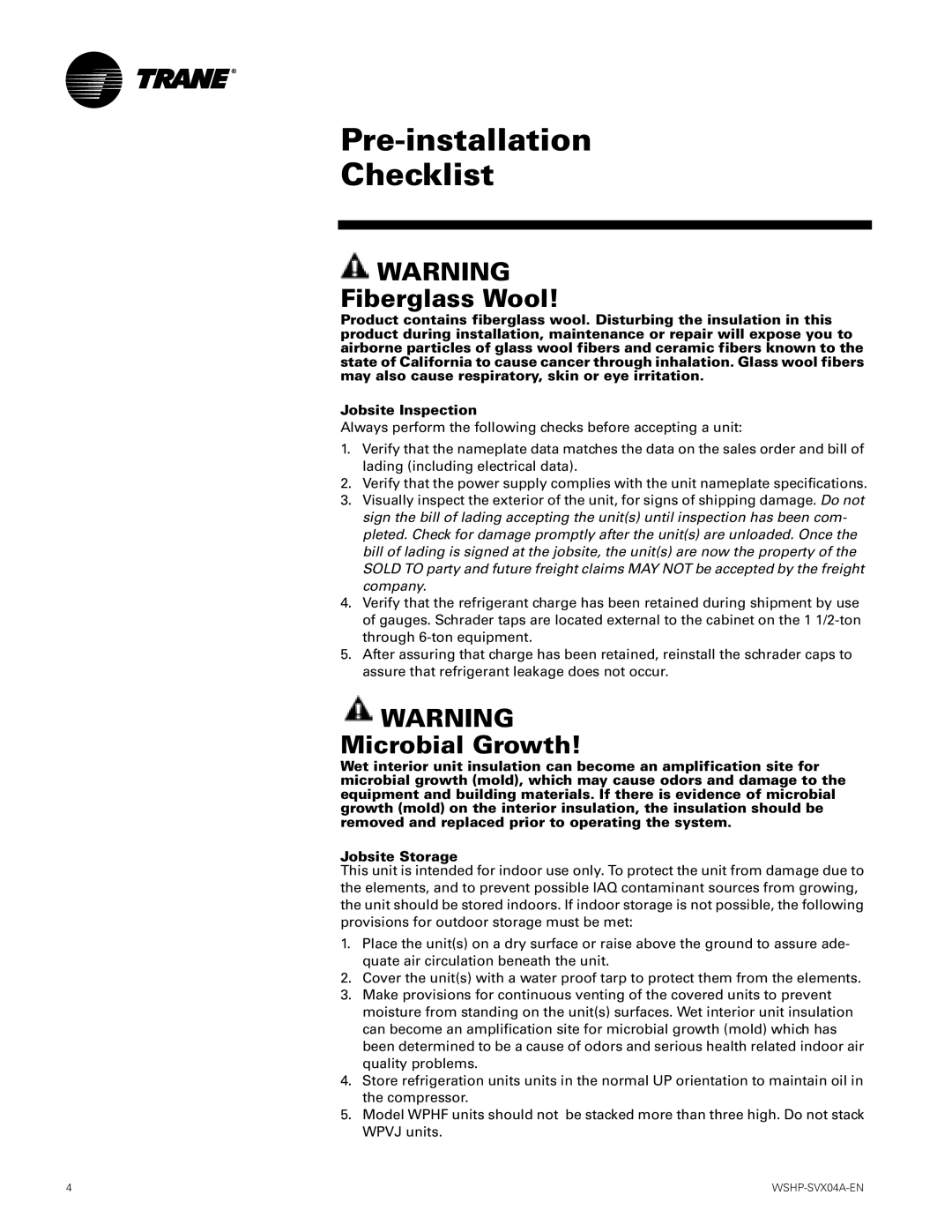
Pre-installation
Checklist
![]() WARNING
WARNING
Fiberglass Wool!
Product contains fiberglass wool. Disturbing the insulation in this product during installation, maintenance or repair will expose you to airborne particles of glass wool fibers and ceramic fibers known to the state of California to cause cancer through inhalation. Glass wool fibers may also cause respiratory, skin or eye irritation.
Jobsite Inspection
Always perform the following checks before accepting a unit:
1.Verify that the nameplate data matches the data on the sales order and bill of lading (including electrical data).
2.Verify that the power supply complies with the unit nameplate specifications.
3.Visually inspect the exterior of the unit, for signs of shipping damage. Do not sign the bill of lading accepting the unit(s) until inspection has been com- pleted. Check for damage promptly after the unit(s) are unloaded. Once the bill of lading is signed at the jobsite, the unit(s) are now the property of the SOLD TO party and future freight claims MAY NOT be accepted by the freight company.
4.Verify that the refrigerant charge has been retained during shipment by use of gauges. Schrader taps are located external to the cabinet on the 1
5.After assuring that charge has been retained, reinstall the schrader caps to assure that refrigerant leakage does not occur.
![]() WARNING
WARNING
Microbial Growth!
Wet interior unit insulation can become an amplification site for microbial growth (mold), which may cause odors and damage to the equipment and building materials. If there is evidence of microbial growth (mold) on the interior insulation, the insulation should be removed and replaced prior to operating the system.
Jobsite Storage
This unit is intended for indoor use only. To protect the unit from damage due to the elements, and to prevent possible IAQ contaminant sources from growing, the unit should be stored indoors. If indoor storage is not possible, the following provisions for outdoor storage must be met:
1.Place the unit(s) on a dry surface or raise above the ground to assure ade- quate air circulation beneath the unit.
2.Cover the unit(s) with a water proof tarp to protect them from the elements.
3.Make provisions for continuous venting of the covered units to prevent moisture from standing on the unit(s) surfaces. Wet interior unit insulation can become an amplification site for microbial growth (mold) which has been determined to be a cause of odors and serious health related indoor air quality problems.
4.Store refrigeration units units in the normal UP orientation to maintain oil in the compressor.
5.Model WPHF units should not be stacked more than three high. Do not stack WPVJ units.
4 |
